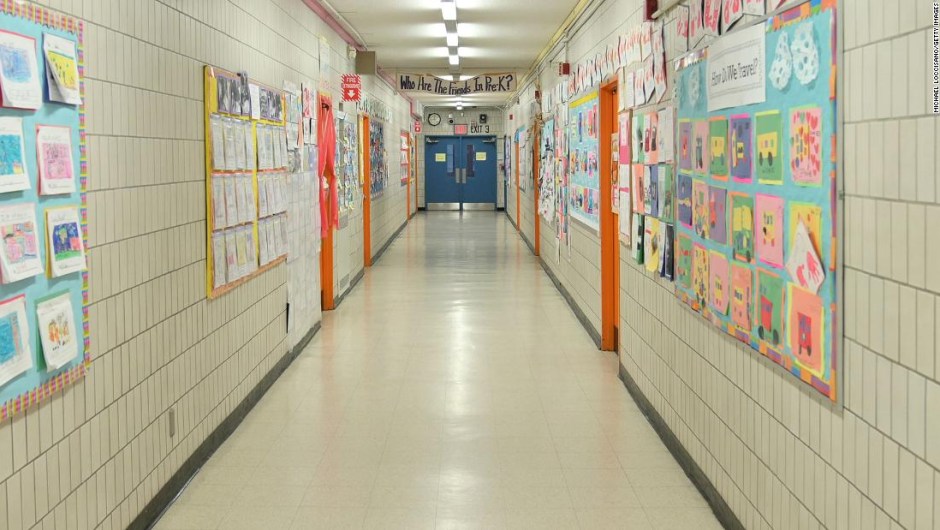Editor's Note:
Pawan Dhingra is a professor at Amherst College and the author of "Hyper Education: Why Good Schools, Good Grades, and Good Behavior Are Not Enough."
The opinions of this comment belong to the author.
See more opinion at CNNe.com/opinion.
(CNN) -
Thinking of hiring a tutor for your child?
Inform yourself first.
With remote or hybrid schools the norm this fall, parents are increasingly concerned about how much their children will learn in school and questioning their own abilities to help children learn.
Wealthy families are hiring private educators and some charities are providing access to academic support to low-income families.
For middle-class families, after-school tutoring companies like Kumon, Sylvan, Mathnasium, and others are becoming more popular.
It was a nearly billion dollar industry before the pandemic hit.
Now, they seek to provide a service geared towards parental anxieties during the pandemic.
However, before participating, parents should ensure that this supplementary education is appropriate for their children.
When it works, it works fine.
When not, the problems can be worse than not having done it at all.
I spent years with more than 100 middle-class families seeking supplemental education for their children, along with teachers, center directors, and others for my book, Hyper Education: Why Good Schools, Good Grades, and Good Behavior Are Not Enough.
Parents who enrolled their children in these programs said their children showed greater competence and confidence.
They often said that their children solved math problems faster and made basic mistakes less often.
Parents also appreciated the value of the hard work that the additional academics seemed to instill.
In other words, they often spoke proudly of their decisions.
But it is not clear whether these programs really benefited children.
In fact, based on my research, some teachers argue that students who are tutored may end up learning less over time than those who are not.
They can memorize facts or equations and make fewer mistakes on their homework, but some may "have no idea" how to apply that knowledge, a high school teacher told me.
Another teacher commented, "I'll tell you, students (not tutors) get more out of the class" because they don't have the presumption that they already know the material.
While tutored children have fewer errors on their homework, their understanding of concepts can lag.
Teachers saw more emotional and social problems among students who felt academic pressure.
Stress and anxiety are no longer reserved for high school or even high school students.
A former kindergarten teacher shared her concerns about her students: “Stress.
Kindergarten or kindergarten stress: constant crying (s).
I think the problem is that (families) are pushing them further, and not all children are prepared for that.
Even if parents tell their children that they care more about their happiness and well-being, being enrolled in tutoring classes can send a different message.
Because parents often underestimate the amount of stress their children experience, they may miss signs of trouble and need to be more aware of the signs they are communicating.
Children's social relationships can suffer as well, as they may appear more capable than their peers, and not just because they are teased or bullied like so-called "nerds."
Children who are tutored can also become bullies.
A principal at an elementary school told me that she sees some children with tutors “flaunt their academic strengths in front of their classmates.
So they make other children feel bad.
If children are not motivated by tutoring, they come to see it, and education in general, as homework.
A health specialist from a Boston-area school district lamented: “What breaks my heart is when I talked to high school students about what they like about school.
(They) replied: 'Nothing.
I hate her'".
Treating learning as a transaction rather than appreciating its inherent value stems in part from the pedagogical techniques of some tutoring centers.
One director shared that his company rewards children for doing well on their assignments.
The older children lost interest in the rewards and had to be incentivized through "Amazon gift cards and iTunes."
This fosters short-term commitment and enthusiasm, making parents feel good about their tutoring decisions, even if it had negative long-term ramifications.
The problems associated with tutoring cannot be completely avoided.
But tutoring works best under certain conditions.
Tutors must not only have significant knowledge of the topic, but must also connect it to real-world situations.
Tutors need strategies for students to care about learning the information and parents should ask what it is.
Additionally, several hours of tutoring per week and very small tutor-to-student ratios have proven to be more effective.
Not all companies are the same.
Parents should ask how long the instructors have been working with the children and what kind of training they have received.
It is appropriate to ask for references from parents who have been there for more than a year.
Parents should serve as a bridge between children's teachers and guardians, and children should feel that there is a team of people who care about their learning and success.
If children resist tutoring, parents need to find ways to incorporate academic material into daily interactions.
For example, the parents I spoke to frequently asked their children to answer some quick math problems or vocabulary words while playing tag in the backyard or over dinner.
With so many concerns surrounding remote instruction, it's understandable that parents want to supplement.
This can be a great option for many families who can afford it, but it can also have significant drawbacks.
Parents can learn from those already participating in further education and decide whether the rewards outweigh the risks.

